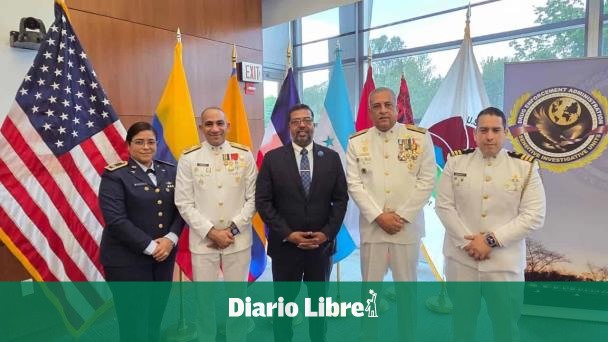Organized Crime's Tech Upgrade: DEA Warns of Evolving Threat, Dominican Republic Leads in Countermeasures

Santo Domingo, Dominican Republic – The landscape of organized crime is rapidly changing, with criminals increasingly leveraging technology to expand their operations and evade detection. This stark warning came from Lee Ballester, Director of U.S. Immigration and Customs Enforcement (ICE), during the graduation ceremony of the Specialized Investigation Unit (SIU) course hosted by the Drug Enforcement Administration (DEA).
Ballester’s address underscored the urgency of adapting law enforcement strategies to confront these evolving threats. He specifically highlighted the alarming rise of fentanyl trafficking, a synthetic opioid responsible for a devastating number of overdose deaths in the United States. Criminal organizations are utilizing sophisticated methods, including encrypted communication platforms and online marketplaces, to distribute this deadly drug.
“We are seeing a convergence of criminal elements, utilizing technology to coordinate their activities across borders,” Ballester stated. “The ease with which these groups can communicate and move illicit goods demands a coordinated and technologically advanced response.”
Dominican Republic’s Proactive Role
While the challenges are significant, the Dominican Republic is demonstrating a strong commitment to combating transnational crime. Juan Cabrera Ulloa, President of the Dominican National Drug Control Agency (DNCD), emphasized the country’s notable achievements in drug seizures and international cooperation during the event. He highlighted the collaborative efforts between Dominican authorities and international partners, including the DEA, in disrupting criminal networks.
“The Dominican Republic recognizes the importance of collaboration in tackling these complex issues,” Cabrera Ulloa declared. “We are proud of our progress in intercepting illicit shipments and working alongside our allies to dismantle criminal organizations.”
Training and Technological Advancement
The SIU course, attended by law enforcement officers from across the region, focused on equipping participants with the skills and knowledge needed to investigate complex criminal cases involving technology. The training covered areas such as digital forensics, cybercrime investigation, and the use of advanced analytical tools.
The DEA’s investment in training programs like the SIU underscores its commitment to strengthening the capacity of partner nations to combat drug trafficking and other forms of organized crime. The ongoing collaboration between the U.S. and the Dominican Republic serves as a model for regional cooperation in addressing these shared threats.
Looking Ahead
As technology continues to evolve, so too will the tactics employed by criminal organizations. Law enforcement agencies must remain vigilant and proactive in adapting their strategies and investing in the latest tools and technologies. The partnership between the United States and the Dominican Republic, exemplified by the SIU course and ongoing collaboration, is crucial in the fight against transnational crime and the protection of both nations.
The future of combating organized crime hinges on embracing innovation and fostering strong international alliances. The Dominican Republic's commitment and the DEA’s support are vital components in this ongoing effort.





